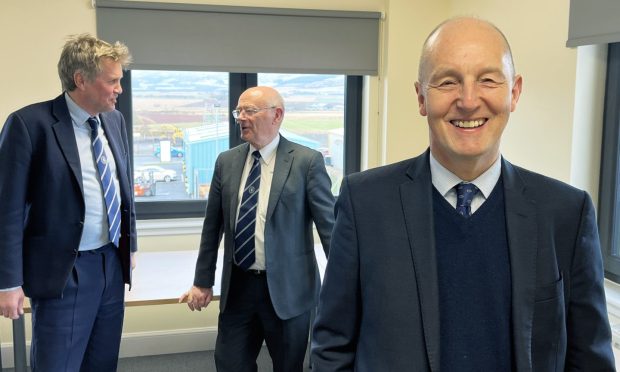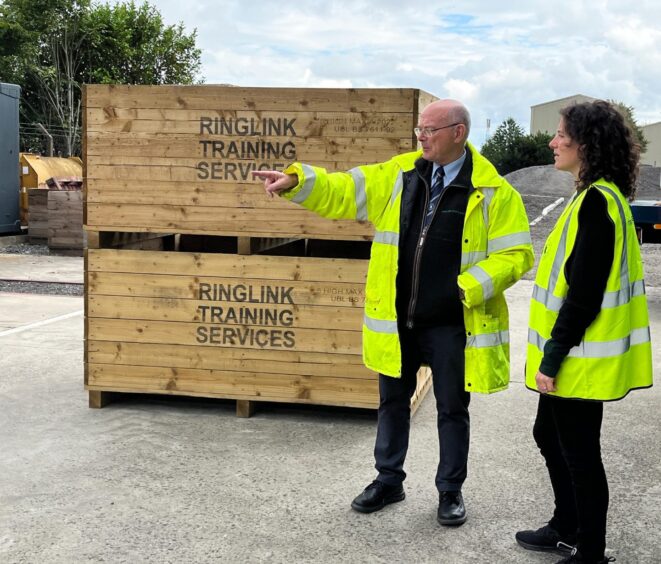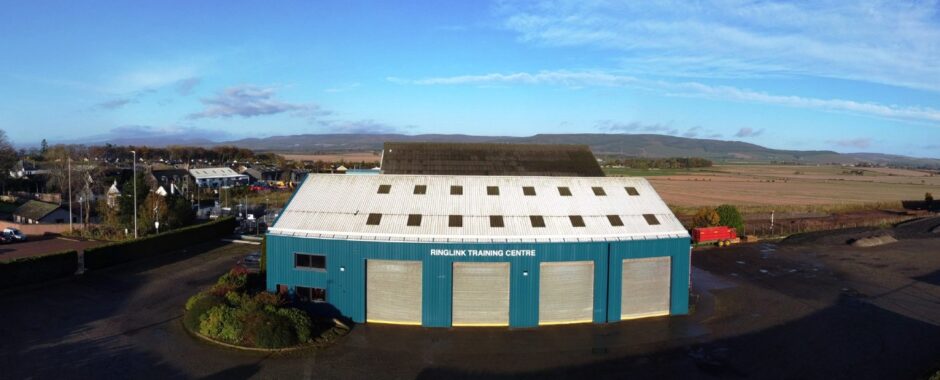Inheritance tax concerns dominated Ringlink Scotland’s annual general meeting.
The Laurencekirk-based agricultural co-operative hosted a special session on the subject.
Speakers admitted they are still grappling with the implications of the changes to inheritance tax reliefs.
And they warned there seems to be no single solution.
More than 80 Ringlink members in attendance
More than 80 Ringlink members took part in the event, either in person or online, to find out more about the controversial new tax rules coming into force in April 2026.
The full 100% freedom from inheritance tax currently available to farmers and crofters will be restricted to the first £1 million of combined agricultural and business property.
Above this amount, landowners will be able to access 50% relief from inheritance tax.
This means they will pay inheritance tax at a reduced effective rate up to 20%, rather than the standard 40%.
Inheritance tax changes will have far-reaching impact
These changes will impact historic estates worth tens of millions down to land and assets valued at just above the proposed tax threshold.
Hamish Lean, head of rural property at law firm Shepherd and Wedderburn, combined practical advice and illustrated examples to explain the new rules to Ringlink members.
His presentation covered topics ranging from the need to review wills and succession planning to the complex tax situation of lifetime gifts.
He answered questions and gave an outline guide to the potential new backdrop.
Highland Perthshire roots
Mr Lean grew up in Highland Perthshire, where his father was a shepherd.
As well as leading Shepherd and Wedderburn’s rural property team, from Aberdeen, he is accredited by the Law Society of Scotland as a specialist in agricultural law.
He also sits on the National Farmers’ Union Scotland legal and technical committee.
Financial pressures
Meanwhile, Ringlink managing director Graham Bruce and chairman James Porter updated members on the co-operative’s results and progress in 2024.
Mr Bruce highlighted the extra burden agricultural employers will face from a 6.7% rise in the national minimum wage.
And employers’ National Insurance contributions will increase by 1.2%from April.
Ringlink’s throughput reached in excess of £86 million in the 2023-24 financial year.
The MD said: “This is slightly below last year’s record but that was stoked by commodity price increases in 2022-23, when nitrogen peaked at £950 per tonne.”
Prices have returned to more realistic levels and may drop further in the coming year, he said.
Around 9,500 people took part in Ringlink Services skills training during the year.
Mr Bruce told members: “By collaborating with other organisations – such as construction and those supporting former military personnel – we can continually expand and enhance our course offering to make sure we offer the courses you need, with more on offer next year.”
Biggest ever intake for Ringlink’s pre-apprenticeship programme
He also hailed the continuing success of the cop-operative’s land-based, pre-apprenticeship programme.
Forty-five young people are taking part in the latest round.
This is the highest number in the 12 years the scheme has been operating.
Accredited by Scotland’s Rural College and administered by Skills Development Scotland, it is seen as a perfect way to attract new blood into the agriculture sector.
Half of all agricultural workers in Scotland are aged 50 or above.
We are very hopeful that a further three years of funding will be approved by the end of this year.” Graham Bruce, managing director, Ringlink
Mr Bruce said: ““The programme has offered hundreds of young people their first step into the industry.
“We have reached the end of our latest tranche of funding, so the positive reaction from the Scottish Government to our proposal submitted in March this year has been welcome.
“We are very hopeful that a further three years of funding will be approved by the end of this year.”



Conversation